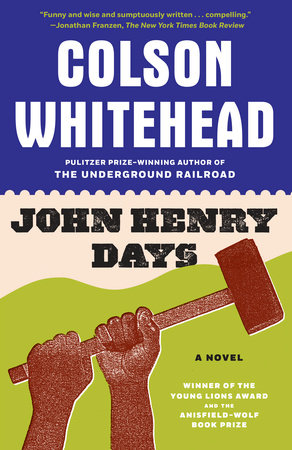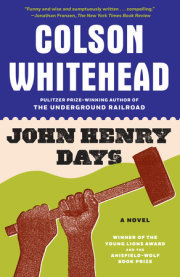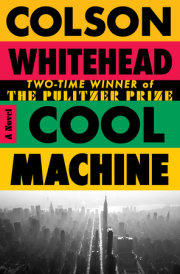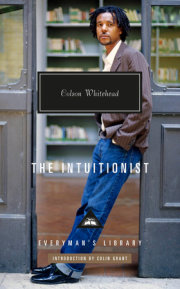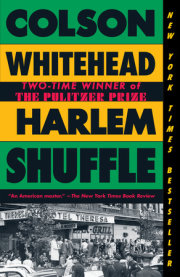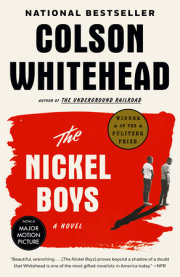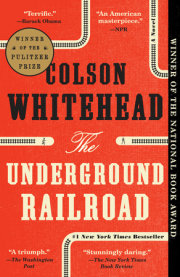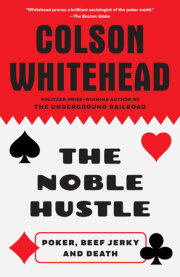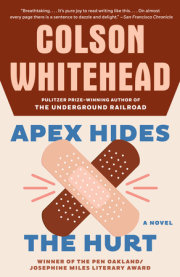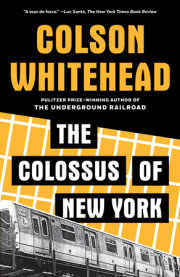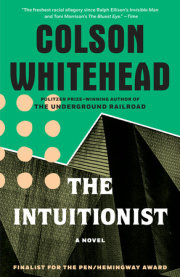Prologue
About 45 years ago I was in Morgan County, Kentucky. There was a bunch of darkeys came from Miss. to assist in driving a tunnel at the head of Big Caney Creek for the O&K railroad. There is where I first heard this song, as they would sing it to keep time with their hammers.
HAVING SEEN YOUR advertisement in the Chicago Defender, I am answering your request for information, concerning the Old-Time Hero of the Big Bend Tunnel Days—or Mr. John Henry.
I have succeeded in recalling and piecing together 13 verses, dedicated to such a splendid and deserving character of by gone days. It was necessary to interview a number of Old-Timers of the Penitentiary to get some of the missing words and verify my recollections; so I only hope it will please you, and be what you wish.
In regards to the reality of John Henry, I would say he was a real live and powerful man, some 50 years ago, and actually died after beating a steam drill. His wife was a very small woman who loved John Henry with all her heart.
My Grand Father, on my mother's side, was a steel driver, and worked on all them big jobs through out the country in them days, when steam drills were not so popular. He was always boasting about his prowess with a hammer, claiming none could beat him but John Henry. He used to sing of John Henry, and tell of the old days when hammers and hammer men could do the work of the steam drills.
Being pretty young at the time, I can not now recall all the stories I heard, but I know John Henry, died some time in the eighties about 1881 or 1882, I'm sure which was a few years before I was born.
I am setting a price on this information; I am a prisoner here in the Ohio Penitentiary and without funds, so I will be pleased to expect what ever you care to offer.
______
IN 1890 PEOPLE around town here were singing the song of John Henry, a hammering man. I was working in an oyster house here in Norfolk, Va. for Fenerstein and Company, and I am 66 years old and still working for them people.
JOHN HENRY WAS a steel driver and was famous in the beginning of the building of the C&O Railroad. He was also a steel driver in the extension of the N&W Railroad. It was about 1872 that he was in this section. This was before the day of the steam drills and drill work was done by two powerful men who were special steel drillers. They struck the steel from each side and as they struck the steel they sang a song which they improvised as they worked. John Henry was the most famous steel driver ever known in southern West Virginia. He was a magnificent specimen of genus homo, was reported to be six feet two, and weighed two hundred and twenty-five or thirty pounds, was a straight as an arrow and was one of the handsomest men in the country—and, as one informant told me, was a black as a kittle in hell.
Whenever there was a spectacular performance along the line of drilling, John Henry was put on the job, and it is said he could drill more steel than any two men of his day. He was a great gambler and was notorious all through the country for his luck at gambling. To the dusky sex all through the country he was "the greatest ever," and he was admired and beloved by all the negro women from the southern West Virginia line to the C&O. In addition to this he could drink more whiskey, sit up all night and drive steel all day to a greater extent than any man at that time. A man of kind heart, very strong, pleasant address, yet a gambler, a roue, a drunkard and a fierce fighter.
MY NAME IS Harvey Hicks and I live in Evington, Virginia. I am writing in reference to your ad in the Chicago Defender. John Henry was a white man they say. He was a prisoner when he was driving steel in the Big Ben tunnel at the time, and he said he could beat the steam drill down. They told him if he did they would set him free. It is said he beat the steam drill about two minutes and a half and fell dead. He drove with a hammer in each hand, nine pound sledge.
MY UNCLE GUS (the man who raised my father) worked on the Cursey Mountain Tunnel and knew the man. He said he was Jamaican, yellow-complected, tall, and weighed about 200 pounds.
_______
I AM A steam shovel operator or "runner" and have heard steel drivers sing "John Henry" all my life and there are probably lots of verses I never heard as it used to be that every new steel driving "nigger" had a new verse to "John Henry."
I never personally knew John Henry, but I have talked to many old-timers who did. He actually worked on the Chesapeake & Ohio Ry. for Langhorn & Langhorn and was able to drive 9 feet of steel faster than the steam drill could in Big Bend Tunnel. Then later he was hanged in Welch, Va., for murdering a man. After sifting out the "chaff" I think I can assure you above is correct.
I have heard three versions of the song, mostly in the same section of the country, that is West Virginia, Virginia, Kentucky, Tennessee and North Carolina, seldom elsewhere except by men from one of the above states. I have worked all over the South, South West, and I have heard the John Henry song almost ever since I could remember, and it is the song I ever first remember of.
I THINK THIS John Henry stuff is just a tale someone started. My father worked for the Burleigh Drill Company and told me for a fact that no steam drill was ever used in the Big Bend Tunnel. He was a salesman for Burleigh.
JOHN HENRY WAS a native of Holly Springs, Mississippi, and was shipped to the Curzee mountain tunnel, Alabama, to work on the AGS Railway in 1880. I have been told that he did indeed beat the steam drill, but did not die that day. He was killed some time later during a cave-in.
HAVING BEEN BORN and raised in the state of Tennessee and, therefore, in sufficiently close contact with the negro element there, it happens I have heard these songs practically all my life, until I left that section of the country six years ago.
I have been informed that John Henry was a true character all right, a nigger whose vocation was driving steel during the construction of a tunnel on one of the Southern railways.
THE BALLAD, by special right, belongs to the railroad builders. John Henry was a railroad builder. It belongs to the pick-and-shovel men—to the skinners—to the steel drivers—to the men of the construction camps. It is sung by Negro laborers everywhere, and none can sing it as they sing it, because none honor and revere the memory of John Henry as much as do they. I have been a "Rambler" all my life—ever since I ran away from the "white folks" when twelve years old—and have worked with my people in railroad grading camps from the Great Lakes to Florida and from the Atlantic to the Missouri River, and wherever I have worked, I have always found someone who could and would sing of John Henry.
JOHN HENRY THE steel driving champion was a native of Alabama and from near Bessemer or Blackton. The steel driver was between the ages of 45 and 50 and weighed about 155 pounds. He was not a real black man, but more of a chocolate color. He was straight and well muscled.
THE LAST TIME I saw John Henry, who was called Big John Henry, was when a blast fell on him and another Negro. They were covered with blankets and carried out of the tunnel. I don't think John Henry was killed in the accident because I didn't hear of him being buried, and the bosses were always careful in looking after the injured and dead. I don't know a thing about John Henry driving steel in a contest with a steam drill, and I don't think I ever saw one at the tunnel. Hand drills were used in the tunnel. They were using an engine at shaft number one to raise the bucket up when we moved to the tunnel, but they didn't have any steam engine or steam drill in the tunnel.
I'VE HEARD THE song in a thousand different places, nigger extra gangs, hoboes of all kinds, coal miners and furnace men, river and wharf rats, beach combers and sailors, harvest hands and timber men. Some of them drunk and some of them sober. It is scattered over all the states and some places on the outside. I have heard any number of verses cribbed bodily from some other song or improvised to suit the occasion.
The opinion among hoboes, section men and others who sing the song is that John Henry was a Negro, "a coal black man" a partly forgotten verse says, "a big fellow," an old hobo once said. He claimed to have known him but he was drunk on Dago Red, so I'm discounting everything he said. I have met very few who claimed to have known him. The negroes of forty years ago regarded him as a hero of their race.
Copyright © 2002 by Colson Whitehead. All rights reserved. No part of this excerpt may be reproduced or reprinted without permission in writing from the publisher.

